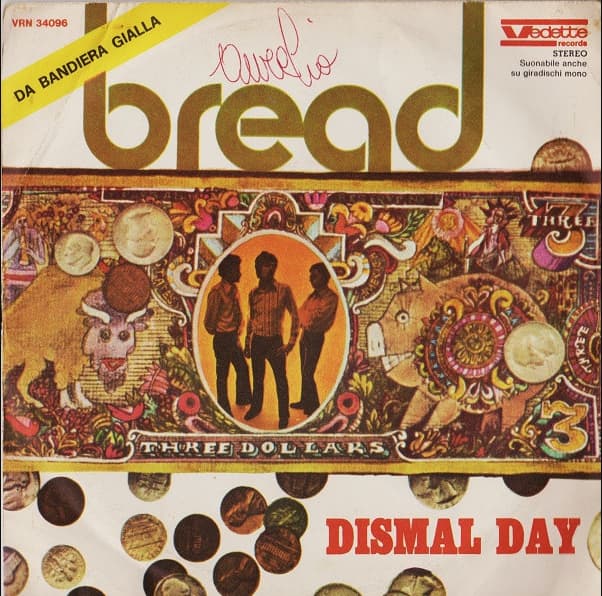
Exploring Bread’s Pioneering Soft Rock: “Dismal Day” and Its Chart Impact
In 1969, the landscape of American soft rock was forever changed with the debut of Bread, a band that would come to symbolize the quintessential elements of the genre throughout the 1970s. Among the tracks featured on their inaugural album, “Dismal Day,” penned by the talented David Gates, stands out not only for its melancholic lyricism but also for its refined musicality. This track, and the album as a whole, introduced Bread’s signature sound to the world, a blend that would soon capture the hearts of many.
“Dismal Day,” running a brief 2:21, is a compact masterpiece of songwriting efficiency. Gates’ lyrics weave a tapestry of despondency and introspection, set against a backdrop of minimalist instrumentation that accentuates the song’s thematic weight. The simplicity of the arrangement—a subtle yet poignant piano line, gentle acoustic guitar strums, and subdued percussion—allows Gates’ soft, earnest vocals to take center stage, conveying a sense of intimate conversation with the listener.
Upon its release, Bread’s debut album entered the Billboard Pop Albums chart, peaking at a modest #127. While not initially groundbreaking in chart performance, the significance of this album (and “Dismal Day” as its opening track) lies in its foundational role for the band. Bread’s sound would evolve and mature in their subsequent albums, leading to greater commercial success. Notably, the re-recorded track “It Don’t Matter to Me” from this album would later climb to #10 on the Billboard Pop Singles chart and #2 on the Adult Contemporary chart, following the breakout success of “Make It with You.”
The album cover of Bread cleverly reflects the era’s colloquial dialogue, with the band members’ faces whimsically depicted on paper currency—a nod to the slang use of “bread” as a synonym for money. This artistic choice not only highlights the album’s identity but also the cultural context of the late 1960s, blending humor with a commentary on the commercial aspects of the music industry.
As we look back on “Dismal Day,” it’s crucial to appreciate it not just as a track, but as a historical piece that helped define the early sound of a band that would become a staple in American music history. For aficionados of classic rock and those interested in the evolution of the soft rock genre, “Dismal Day” serves as a poignant reminder of Bread’s humble beginnings and their substantial impact on music.